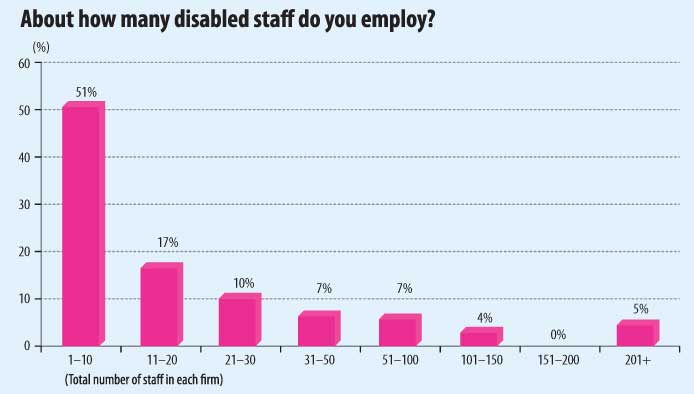Poll reveals reactions to new diversity rules, challenges ahead
· Most firms aware of the new rules
· Two-thirds employ disabled staff
· Diversity attracts the best workers
The Japanese government recently implemented regulations requiring that, in firms with 50 or more employees, individuals with disabilities must account for at least 2% of the staff.
This development is important because it not only provides those with disadvantages an equal opportunity, but also highlights workforce diversity as a way of addressing skills shortages.
In a candidate-stretched environment that is increasingly focused on overseas markets, local employers must embrace a wide range of viewpoints, backgrounds and experiences. Investment in new ways of thinking will pay dividends, as it drives consumer spending and the economy overall, particularly as businesses approach new and unexplored markets and sectors.
Hays Specialist Recruitment Japan KK surveyed more than 200 hiring managers across Japan in researching the development of workplace diversity and reactions to the new regulations.
The results show that more than two thirds of the responding firms have employees with disabilities, while more are working to attain a fully diverse workforce.
Of the businesses surveyed, the government criteria applies to 79%, of whom 11% said they are yet to recruit more staff with disabilities. This shows that most businesses are aware of the new regulation and have been making appropriate changes.
Our poll reveals that 79% of the respondents employ up to 30 staff with disabilities, of whom 70% fill administrative posts and 23% have jobs such as that of driver, caretaker, inventory/storage clerk, developer, engineer, planner or salesperson.
The diversity of roles shows anew that, the wider employers open their recruitment pool, the greater will be their choice of quality talent and, in turn, the easier it will be to find the right person.
Employers who limit diversity parameters, effectively limit their ability to fill roles in a skills-short market. At the same time, a diverse workforce sends a strong message that the organisation is accepting of all, making it an employer of choice.
In some cases, hiring candidates with disabilities requires changes. Interestingly, the Hays survey shows that only 30% of responding organisations provide wheelchair accessibility. However, regardless of any necessary accommodations, employers should focus on how candidates might contribute to the business.
In addition, it is important to ensure that standard induction procedures are accessible to all. Although they do not always have to know the details of a disability, managers, supervisors and colleagues need to be suitably briefed so that they understand the adjustments required.
Finally, employers should not make assumptions about a person’s ability to take part in the firm’s activities. Always check whether adjustments are needed.
While some training in disability awareness may be required to reduce the risk of discriminatory attitudes, embracing diversity allows employers to tap the breadth of the talent pool and ensure that they are attracting the best of the best.
Businesses are made up of people and, thus, are as good as the talent they attract. To be the very best, businesses must reflect, in their staff, the breadth of the working population.
This survey is the second conducted by Hays in its series, Diversity in the Workplace: Thought Leadership, the first having focused on women in the workplace.

